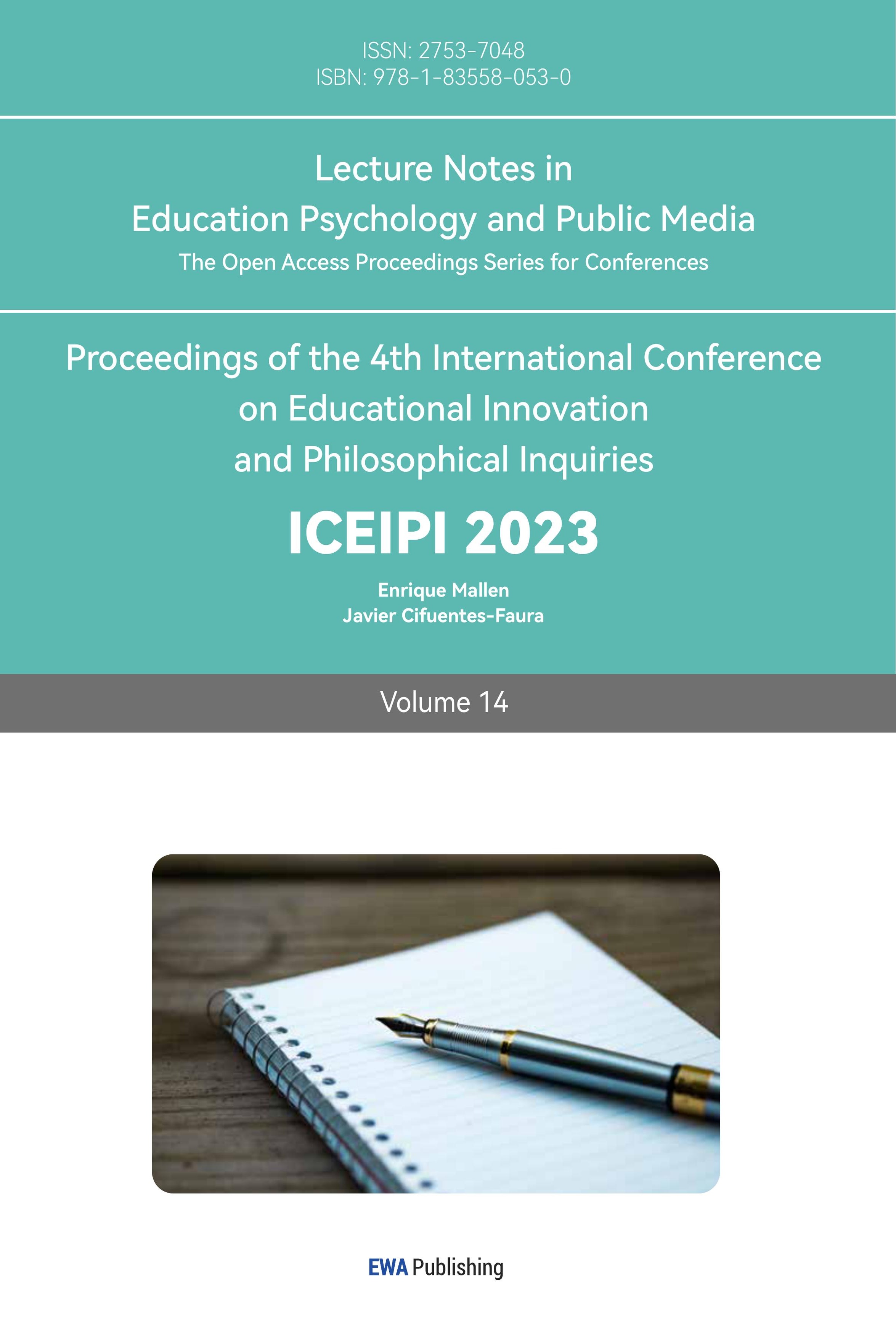References
[1]. Luo Qiaoling, Hu Yidong and Qiu Yongdong. 2011. Theory, practice and research perspectives of international low-carbon urban planning. Planner, 27(05):5-10+27.
[2]. Wu Xiangpeng. 2019. International low-carbon city development practices and inspiration. Development Research, 204(05):44-52.
[3]. Yu Han,Zhao Xiaoyan and Yan Jun. 2021. Research on the development and evaluation of low carbon cities. Modern Chemical Industry, 41(07):35-40.
[4]. Wang Ying. 2018. Research progress and practice analysis of low-carbon urban planning in China. Urban construction theory research (electronic version), 258(12):2.
[5]. Dai Yixin. 2009. A preliminary study on the concept evolution and measurement of low carbon city development. Modern Urban Studies, 24(11):7-12.
[6]. Yuan Xiaoling and Zhong Yunyun. 2010. The practice and system construction of low-carbon cities in China. Urban Development Research, 17(05):42-47+58.
[7]. Xin Zhangping and Zhang Yintai. 2008. Low carbon economy and low carbon city. Urban Development Research, 85(04):98-102.
[8]. Carbon neutrality Research Group of 21st Century Economic Research Institute, Nancai City. 2021. China Net Zero Carbon City Development Report.
[9]. Gu Zhaolin, Tan Zongbo and Liu Wan. 2009. Climate change, carbon emission and low carbon city planning. Journal of Urban Planning, 181(03):38-45.
[10]. Huang Yi and Chang Xiangyang. 2019. Low carbon economy and transportation industry development-an empirical study based on data from national central cities. Social Scientist, 271(11):67-73.
Cite this article
Yao,L. (2023). Urban Planning Strategies Based on Green and Low-Carbon: A Case Study in Guangzhou City, China. Lecture Notes in Education Psychology and Public Media,14,177-183.
Data availability
The datasets used and/or analyzed during the current study will be available from the authors upon reasonable request.
Disclaimer/Publisher's Note
The statements, opinions and data contained in all publications are solely those of the individual author(s) and contributor(s) and not of EWA Publishing and/or the editor(s). EWA Publishing and/or the editor(s) disclaim responsibility for any injury to people or property resulting from any ideas, methods, instructions or products referred to in the content.
About volume
Volume title: Proceedings of the 4th International Conference on Educational Innovation and Philosophical Inquiries
© 2024 by the author(s). Licensee EWA Publishing, Oxford, UK. This article is an open access article distributed under the terms and
conditions of the Creative Commons Attribution (CC BY) license. Authors who
publish this series agree to the following terms:
1. Authors retain copyright and grant the series right of first publication with the work simultaneously licensed under a Creative Commons
Attribution License that allows others to share the work with an acknowledgment of the work's authorship and initial publication in this
series.
2. Authors are able to enter into separate, additional contractual arrangements for the non-exclusive distribution of the series's published
version of the work (e.g., post it to an institutional repository or publish it in a book), with an acknowledgment of its initial
publication in this series.
3. Authors are permitted and encouraged to post their work online (e.g., in institutional repositories or on their website) prior to and
during the submission process, as it can lead to productive exchanges, as well as earlier and greater citation of published work (See
Open access policy for details).
References
[1]. Luo Qiaoling, Hu Yidong and Qiu Yongdong. 2011. Theory, practice and research perspectives of international low-carbon urban planning. Planner, 27(05):5-10+27.
[2]. Wu Xiangpeng. 2019. International low-carbon city development practices and inspiration. Development Research, 204(05):44-52.
[3]. Yu Han,Zhao Xiaoyan and Yan Jun. 2021. Research on the development and evaluation of low carbon cities. Modern Chemical Industry, 41(07):35-40.
[4]. Wang Ying. 2018. Research progress and practice analysis of low-carbon urban planning in China. Urban construction theory research (electronic version), 258(12):2.
[5]. Dai Yixin. 2009. A preliminary study on the concept evolution and measurement of low carbon city development. Modern Urban Studies, 24(11):7-12.
[6]. Yuan Xiaoling and Zhong Yunyun. 2010. The practice and system construction of low-carbon cities in China. Urban Development Research, 17(05):42-47+58.
[7]. Xin Zhangping and Zhang Yintai. 2008. Low carbon economy and low carbon city. Urban Development Research, 85(04):98-102.
[8]. Carbon neutrality Research Group of 21st Century Economic Research Institute, Nancai City. 2021. China Net Zero Carbon City Development Report.
[9]. Gu Zhaolin, Tan Zongbo and Liu Wan. 2009. Climate change, carbon emission and low carbon city planning. Journal of Urban Planning, 181(03):38-45.
[10]. Huang Yi and Chang Xiangyang. 2019. Low carbon economy and transportation industry development-an empirical study based on data from national central cities. Social Scientist, 271(11):67-73.









